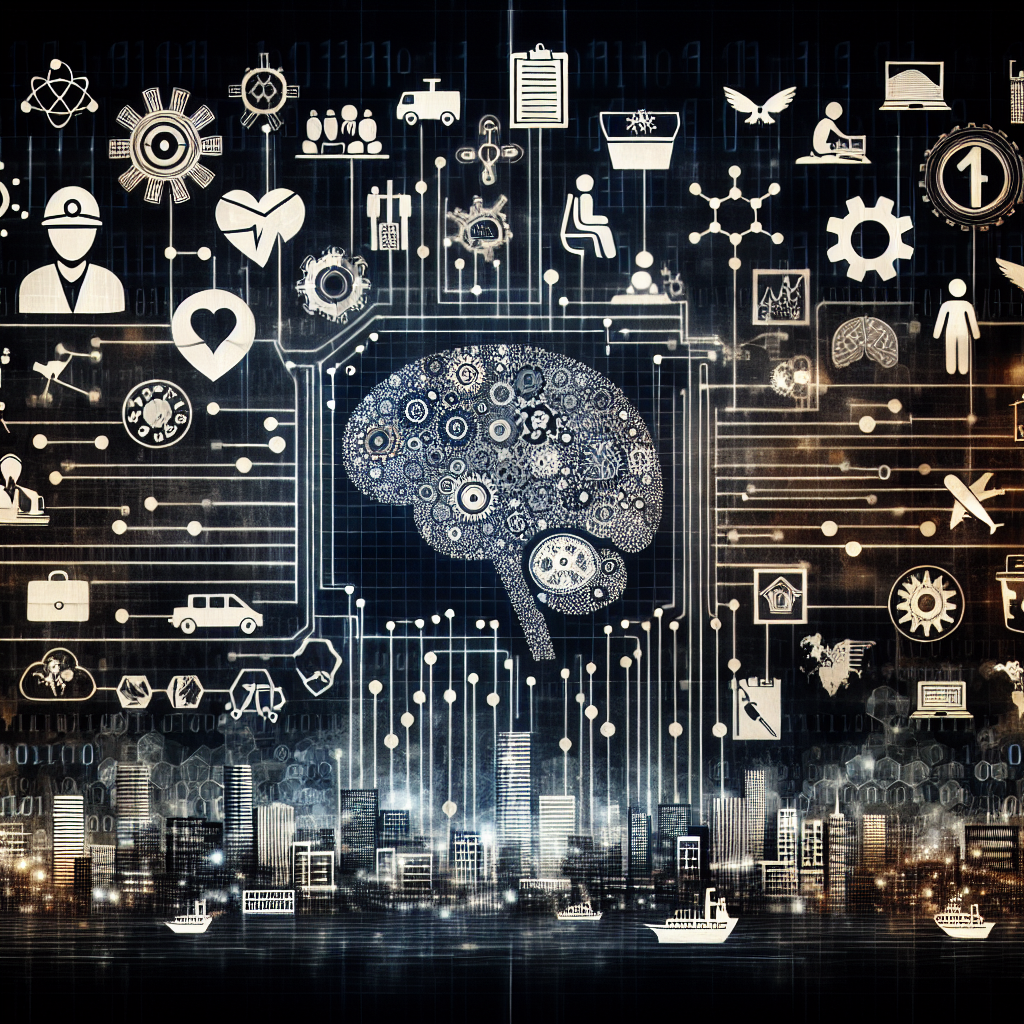Artificial General Intelligence (AGI) is a term used to describe a type of artificial intelligence that possesses the ability to understand and learn any intellectual task that a human being can. In other words, AGI is a form of AI that has the potential to think, reason, and solve problems in the same way that a human can. While current AI systems are limited in their capabilities and are designed to perform specific tasks, AGI has the potential to revolutionize the way we work and live.
The development of AGI has the potential to profoundly impact the future of work. As AGI becomes more advanced and widespread, it will likely lead to significant changes in the labor market, affecting both jobs and industries across the board. While the full extent of these changes is still uncertain, there are several key ways in which AGI is expected to impact the future of work.
Automation of Routine Tasks
One of the most immediate impacts of AGI on the future of work is likely to be the automation of routine tasks. AGI has the potential to perform a wide range of tasks that are currently done by humans, such as data entry, customer service, and even some forms of creative work. As AGI becomes more advanced, it is expected to automate a growing number of routine tasks, freeing up human workers to focus on more complex and creative work.
Increased Productivity
Another potential impact of AGI on the future of work is increased productivity. AGI has the potential to improve efficiency and streamline processes in a wide range of industries, leading to increased productivity and output. This could result in higher profits for businesses, as well as increased job opportunities for workers in industries that benefit from the use of AGI.
New Job Opportunities
While AGI is expected to automate many routine tasks, it is also likely to create new job opportunities in industries that leverage the technology. For example, as AGI becomes more advanced, there may be an increased demand for workers who can design, develop, and maintain AGI systems. Additionally, industries that rely on creative work, such as marketing, design, and entertainment, may see an increase in job opportunities as AGI takes on more routine tasks.
Reskilling and Upskilling
As AGI begins to impact the labor market, there will be an increased need for workers to reskill and upskill in order to remain competitive. Workers who are able to adapt to the changing demands of the labor market and acquire new skills will be more likely to thrive in an economy that is increasingly driven by AGI. Employers may also need to invest in training programs to help their workers develop the skills needed to work alongside AGI systems.
Challenges and Considerations
While the potential benefits of AGI on the future of work are significant, there are also a number of challenges and considerations that need to be addressed. One of the key concerns surrounding the development of AGI is the potential for job displacement. As AGI becomes more advanced and widespread, there is a risk that many jobs may be automated, leading to job losses for workers in a wide range of industries.
Another concern is the potential for bias and discrimination in AGI systems. As AI systems become more advanced, there is a risk that they may inadvertently perpetuate existing biases and inequalities in society. It will be important for developers and policymakers to address these issues in order to ensure that AGI is used in a fair and ethical manner.
FAQs
Q: Will AGI completely replace human workers?
A: While AGI has the potential to automate many routine tasks, it is unlikely to completely replace human workers. There will always be a need for human workers to perform tasks that require creativity, critical thinking, and emotional intelligence.
Q: How can workers prepare for the impact of AGI on the future of work?
A: Workers can prepare for the impact of AGI by reskilling and upskilling in order to remain competitive in the labor market. Developing skills in areas such as data analysis, programming, and problem-solving will be valuable in an economy that is increasingly driven by AGI.
Q: What role will policymakers play in shaping the future of work in an AGI-driven economy?
A: Policymakers will play a crucial role in shaping the future of work in an AGI-driven economy. They will need to develop regulations and policies that ensure the ethical and fair use of AGI systems, as well as support workers who may be displaced by automation.
In conclusion, AGI has the potential to revolutionize the future of work by automating routine tasks, increasing productivity, and creating new job opportunities. While there are challenges and considerations that need to be addressed, the development of AGI has the potential to bring significant benefits to workers and industries across the board. By preparing for the impact of AGI and addressing key concerns, we can ensure that the future of work is shaped in a way that is fair, ethical, and inclusive.

